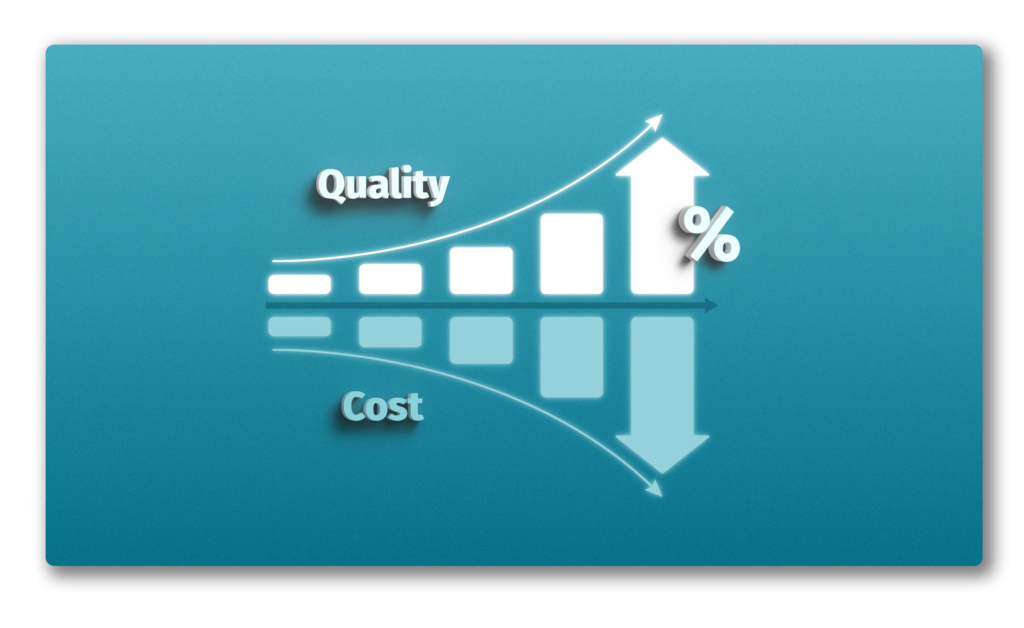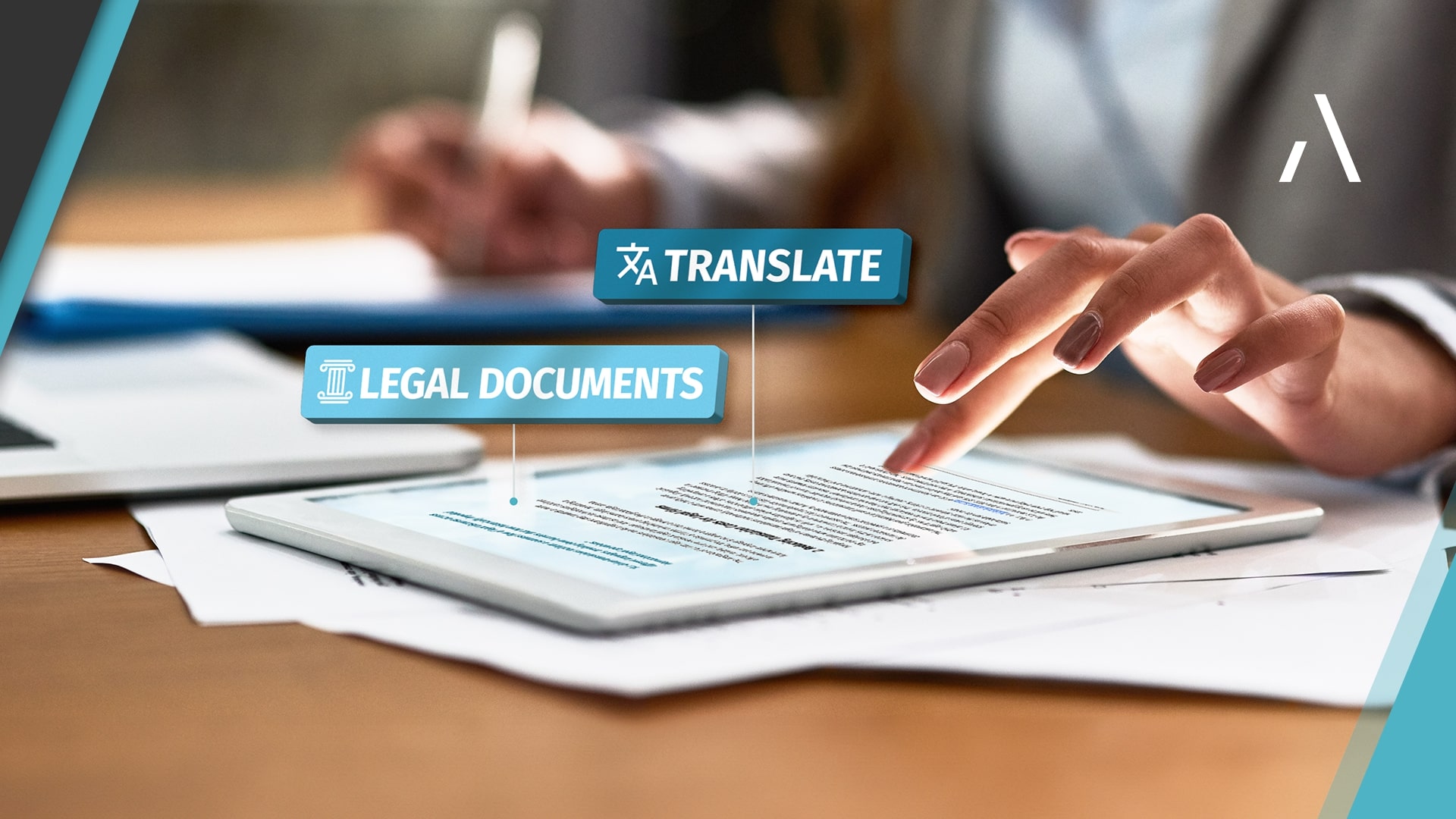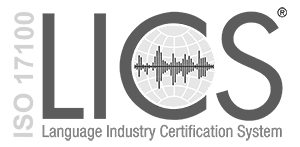Imagine a world where every legal document, no matter how complex or nuanced, is translated with pinpoint accuracy in seconds. A world where language barriers in courtrooms and contract negotiations are eradicated, and legal professionals can focus on what truly matters—delivering justice and strategic counsel.
This is not a distant future; it is the reality unfolding before our eyes.
The truth is, artificial intelligence is revolutionizing the field of legal translations in ways we never thought possible. In this blog, we explore how cutting-edge A.I. technologies are transforming the landscape, offering unprecedented levels of precision and efficiency.
Join us as we delve into the myriad ways A.I. is reshaping the legal translation process—from real-time courtroom interpretations to automated contract creation—and discover the exciting future that awaits the legal profession in the era of artificial intelligence (A.I.).
Key Takeaways
- A.I. technologies, like machine learning and natural language processing, are improving the precision of legal translations, minimizing the risk of costly errors and miscommunications.
- A.I.-driven translation tools help legal firms reduce costs by automating labor-intensive translation tasks, allowing resources to be allocated to more strategic areas.
- A.I. provides legal professionals with advanced translation tools, enhancing their ability to understand and work with complex legal documents in multiple languages.
- A.I.-powered translations transform cross-border legal negotiations by providing accurate and real-time communication, facilitating better understanding and collaboration.
- A.I.'s real-time translation capabilities are reshaping courtroom dynamics by providing instantaneous, accurate translations, providing fairness and efficiency in legal proceedings.

1. Improving Accuracy and Reducing Errors in Legal Translations
The advent of A.I. technologies, notably machine learning and natural language processing, has brought a paradigm shift in the realm of legal translations. These sophisticated tools dive deep into the complexities of legal language, dissecting and understanding the nuances that traditional translation methods often miss.
By processing vast datasets and adapting through ongoing human feedback, A.I. systems are equipped to deliver translations with an unprecedented level of precision. This meticulous approach significantly mitigates the risk of inaccuracies and errors, which in the legal domain, can have far-reaching consequences.
“The advent of A.I. technologies has brought a paradigm shift in legal translations, dissecting and understanding nuances that traditional methods often miss."
In the intricate dance of legal documentation and proceedings, even minor misinterpretations can lead to substantial setbacks, including financial losses and reputational damage.
A.I.'s capability to fine-tune translations ensures that legal documents are not only accurately translated, but are also aligned with the specific legal standards and terminologies of the relevant jurisdiction. This level of precision bolsters the integrity of legal processes, safeguarding against the pitfalls of miscommunication.
Moreover, A.I.-driven translations facilitate a seamless flow of legal discourse across different languages, breaking down barriers that have historically impeded international legal operations.
By entrusting the task of translations to A.I., legal professionals can focus their expertise on the strategic aspects of their work, confident in the knowledge that the foundational element of accurate communication is securely in place. In a study by Thomson Reuters among legal professionals, improved productivity and efficiency were seen as the biggest positive effects of A.I. (75% and 67%, respectively).
“A.I.-driven translations facilitate a seamless flow of legal discourse across different languages, breaking down barriers that have historically impeded international legal operations."
The integration of A.I. into legal translations marks a significant step towards a more efficient, reliable, and error-resistant legal landscape. And as these technologies continue to evolve and refine, the promise of further minimizing errors looms large, heralding a future where language is no longer a barrier but a bridge in the global legal arena.
2. Reducing Translation Costs for Legal Firms
Navigating the terrain of legal translations traditionally comes with a hefty price tag—particularly when dealing with complex documents that demand not only linguistic but also legal precision. A.I., with its algorithm-driven efficiencies, offers a compelling solution to this financial conundrum by automating much of the heavy lifting involved in the translation process. The essence of this transformation lies in A.I.'s ability to process documents at a speed and scale unattainable by human translators alone.
This automation goes beyond just swift translations; it redefines workflow efficiency within legal firms. By streamlining tasks that previously required hours of manual labor, A.I. allows these firms to reallocate their financial and human resources towards more strategic areas of their practice. This shift not only optimizes operational costs, but also enhances the value delivered to clients, creating a more competitive and financially sustainable service model.
In fact, in a Blickstein Group survey of 82 law department operations professionals across the U.S. conducted in late 2023, 85% said they believe most law departments and most law firms will be using generative A.I. substantially in the next three years. Two-thirds said it would help them bring more work in-house, while 70% said it would lower their legal costs.
DID YOU KNOW?
In a 2023 survey of 82 law department operations professionals located across the U.S.:
85% said they believe most law departments and firms will be using generative A.I. substantially within the next three years
66% said it would help them bring more work in-house
70% said they expected it to lower their legal costs
Source: Blickstein Group
Moreover, the scalability of A.I.-driven translation tools means that legal firms can handle larger volumes of work without a corresponding increase in costs. This scalability is particularly beneficial for firms dealing with international cases, where the volume and variety of documents requiring translation can be daunting. It comes as no surprise, then, that among respondents at law firms, more than half (55%) reported seeing A.I. as having a positive impact on their work.
"Among respondents at law firms, more than half (55%) reported seeing A.I. as having a positive impact on their work.”
Source: Thomson Reuters
The cost reductions facilitated by A.I. are not a mere trimming of expenses, but a strategic realignment of resources. Legal firms equipped with A.I. translation capabilities are better positioned to invest in talent, technology, and the development of specialized legal services. In doing so, they not only navigate the challenges of today's global legal landscape more effectively, but also pave the way for future innovations that will continue to transform the industry.

3. Augmenting Legal Expertise with A.I. Innovations
Leveraging the potential of A.I. within the realm of legal expertise is akin to equipping professionals with an advanced set of tools, ones that are tailored to navigate the intricate linguistic demands of the legal field. By tapping into A.I.'s vast reservoir of translation resources and comprehensive legal terminologies, attorneys gain the ability to swiftly overcome language barriers that might otherwise hinder effective communication. This instantaneous access to a wealth of knowledge allows for an enhanced understanding of complex legal documents in multiple languages, ensuring that nothing is lost in translation.
Incorporating A.I. into the legal toolkit does more than just enhance linguistic capabilities; it enriches the very fabric of legal practice. Legal professionals are provided with an augmented layer of support, enabling them to engage with clients and international colleagues with newfound confidence. This symbiotic relationship between A.I. and legal expertise opens up a pathway to more informed decision-making, where every legal nuance is accurately captured and conveyed.
“Incorporating A.I. into the legal toolkit does more than just enhance linguistic capabilities; it enriches the very fabric of legal practice. Legal professionals are provided with an augmented layer of support, enabling them to engage with clients and international colleagues with newfound confidence.”
Further, the integration of A.I. technologies into the legal domain is reshaping client interactions. By streamlining the translation process, lawyers can offer more timely and personalized services, thereby strengthening client relationships and fostering a deeper level of trust. This technology-driven approach not only bolsters the lawyer’s role as an advisor, but also as a strategic partner equipped to navigate the global legal environment with agility and precision.
In fact, A.I.-powered tools have the potential to automate up to 23% of a lawyer's work, a significant portion of which involves legal research. Through the lens of A.I., the legal profession is witnessing a transformative shift—one that amplifies the capabilities of legal experts and redefines the boundaries of legal practice.
According to a survey commissioned by Ironclad, a contract management software company, 800 lawyers identified the primary applications of artificial intelligence in legal work as tagging metadata in documents, flagging risky contract clauses, and conducting contract analysis.
Lawyers, both in-house and outside counsel, also reported seeing significant uses of the technology in aiding research, summarizing case law, and reviewing documents for litigation. In-house lawyers are further along in their use of the tools, with almost 90% of them saying they already use A.I., compared to 60% of those at law firms who say that.
"In-house lawyers are further along in their use of the tools, with almost 90% of them saying they already use AI compared to 60% of those at law firms who say that.”
Source: Ironclad
4. A.I. in Multilingual Legal Negotiations
The landscape of multilingual legal negotiations is undergoing a profound transformation, thanks to the integration of A.I.-driven translation technologies. These innovative tools are pivotal in dismantling the language barriers that have traditionally complicated cross-border legal discussions.
By providing real-time, accurate translations, A.I. ensures that every participant, irrespective of their native tongue, can fully comprehend the nuances of legal dialogues as they unfold. This heightened level of understanding is critical in the delicate ecosystem of legal negotiations, where every word and phrase carries weight and the potential to influence outcomes.
“A.I. ensures that every participant, irrespective of their native tongue, can fully comprehend the nuances of legal dialogues as they unfold, transforming the landscape of multilingual legal negotiations."
The utility of A.I. in this context extends beyond mere translation; it facilitates a deeper level of engagement among parties. Negotiators equipped with A.I. translation capabilities can navigate the complexities of legal terminology with ease, ensuring that all discussions are grounded in mutual understanding and respect for the legal frameworks involved. This technology empowers legal professionals to conduct more effective and inclusive negotiations, bridging the gap between diverse legal systems and cultures.
What’s more, A.I.-enhanced translations allow for a more dynamic negotiation process. Legal professionals can react and respond in real-time, making adjustments and clarifications on the spot. This immediacy not only streamlines negotiations, but also fosters a more collaborative atmosphere, paving the way for agreements that are both equitable and efficiently reached.
The role of A.I. in multilingual legal negotiations is not just transformative—it is revolutionary, setting a new standard for clarity and cooperation in the global legal arena.
5. A.I.-Powered Real-Time Translations in Courtrooms
The integration of A.I.-powered real-time translations in courtrooms is a groundbreaking development that is reshaping the dynamics of legal proceedings.
Through the utilization of advanced algorithms, these A.I. tools are capable of translating spoken language instantaneously, enabling all participants—judges, lawyers, defendants, and witnesses—to fully engage in the process without the hindrance of language barriers. This seamless translation process not only facilitates a clearer understanding among all parties but also ensures that justice is administered fairly and efficiently.
"The integration of A.I.-powered real-time translations in courtrooms is reshaping the dynamics of legal proceedings, ensuring justice is administered fairly and efficiently."
The significance of this technology extends beyond the mere convenience of understanding—it upholds the principle of fairness in legal proceedings, guaranteeing that non-native speakers receive the same level of information and opportunity to participate as their native counterparts. The immediacy provided by A.I. translations eliminates the delays traditionally associated with translation services, keeping the flow of the courtroom smooth and uninterrupted.
Moreover, the accuracy of these A.I. systems, honed through continuous learning and adaptation to legal terminologies, diminishes the risk of misinterpretation—a crucial factor in legal settings where every word matters. As these technologies advance, they promise to further refine the precision with which legal languages are translated, thereby enhancing the integrity of courtroom proceedings worldwide. The implementation of A.I.-powered real-time translations represents not just a technological advancement, but a leap toward more inclusive and equitable legal systems globally.
6. Future Innovations: A.I. Creating Legal Documents
The horizon of A.I. in the legal field is broadening, with promising innovations on the cusp of transforming document creation and translation. A.I.'s capability to auto-generate legal texts, from nuanced contracts to comprehensive legal briefs, introduces a new era of efficiency and precision. This leap forward not only expedites the drafting process, but also guarantees a level of consistency and accuracy previously unattainable by manual efforts alone.
The real beauty of this evolution lies in A.I.'s deep learning algorithms, which are designed to grasp the intricate patterns of legal language and apply them across various documents seamlessly. This means legal professionals can entrust the laborious task of drafting to A.I., allowing them to redirect their focus towards strategy and client engagement.
Stuart Fuller, global head of legal services at KPMG International, said he’s convinced generative AI will transform the legal profession. As a result, KPMG legal professionals are infusing the latest A.I. into their own work and the services they provide clients. “We either embrace the change or we let the change happen to us,” Fuller told Legal Dive. “And the better way to manage your own outcomes is to embrace the change and welcome it with open arms.”
"We either embrace the change or we let the change happen to us. And the better way to manage your own outcomes is to embrace the change and welcome it with open arms.”
— Stuart Fuller, Global Head of Legal Services, KPMG International
Source: Legal Dive
As A.I. systems become more sophisticated, they will further minimize human error, ensuring that every document adheres to the highest standards of legal accuracy. The potential for A.I. to craft and translate legal documents marks a significant milestone in the journey towards a more innovative, streamlined legal profession.
Conclusion
At the dynamic intersection of law and language, A.I. stands as a beacon of innovation, propelling us toward a future where legal translations are not just a necessity but a strategic asset.
As we've explored, the integration of A.I. in legal processes—from drafting contracts to real-time courtroom translations—heralds a new era of efficiency, accuracy, and global cooperation. This evolution offers legal professionals the tools to navigate the complexities of the global legal landscape with unprecedented ease and precision.
"The future of legal translations, empowered by A.I., is not just about overcoming language barriers; it's about creating a more inclusive, equitable, and efficient legal system worldwide.”
As we stand on the cusp of these transformative advancements, it's crucial for legal practitioners to embrace A.I. technologies. By doing so, they not only streamline their operations but also enhance their capacity to serve clients across linguistic and cultural divides.
The future of legal translations, empowered by A.I., is not just about overcoming language barriers; it's about creating a more inclusive, equitable, and efficient legal system worldwide. And the good news is that 78% of in-house lawyers expect law firms to make them aware of the firms' use of emerging A.I.
Let's seize the opportunities presented by A.I. innovations. Together, we can redefine the boundaries of legal practice, ensuring that justice knows no language barrier. Engage with A.I. in your legal practice today, and be a part of shaping the future of law.
Elevate Your Legal Practice with A.I.-Powered Translations
Don't let language barriers hinder your global legal strategy. Alexa Translations A.I. offers cutting-edge, legally-precise translations that can revolutionize your cross-border operations.
- Enhance efficiency with lightning-fast A.I. translations
- Ensure accuracy with our legal domain expertise
- Maintain confidentiality with secure, encrypted processes
- Stay competitive in the evolving legal landscape
Ready to harness the power of A.I. for your legal translations? Discover more about how Alexa Translations can transform your international legal work today.














